Roundworms in Horses
Signs of Roundworms in my Horse
Roundworms are generally found in horses less than 3 years old and most commonly in weanlings and yearlings. Sign are pot belly, rough hair coat, weight loss, depression, nasal discharge, fever, respiratory distress, liver damage, stunted growth, diarrhea, intestinal blockage, and rupture.
The earliest and best signs are microscopic eggs in a stool sample that indicate treatment is needed before the other signs become apparent. Fecal egg counts can give the owners and veterinarians an estimate of how severe a roundworm infection may be. Therefore, ordering fecal egg counts for your young horses is important.
There appears to be several reasons for this higher rate of infection in young horses, less than 2 years of age. First foals and yearlings don't seem to be as particular where or what they eat therefore they have a tendency to eat in areas where the number of roundworm eggs may be greater. Also it appears that as the horse gets older they may develop immunity to some stages of the parasites cycle. The eggs or larva as they migrate through the tissues is kept from becoming adult worms in the intestines. How and where the immune system interfere with the worms is unknown.
What are Roundworms?
Mature Roundworms are white in color, females can grow up to 20 inches long and males grow up to 10 inches. The eggs will remain infective for many years in the soil and can withstand great variations in temperature, can be well below freezing for long periods of time, or very warm without killing the larva inside the eggs.
The adults look very much like some of their close relatives the earth worms, they may be from 5 inches to nearly 20 inches in length and are generally white to light grayish blue in color. They generally are described as looking like spaghetti and can cause the young horse to appear malnourished (rough hair coat and pot bellied).
The larvas are often responsible for fairly severe respiratory problems in weanlings and yearlings as they migrate through the lungs. Large numbers of these worms can also cause impaction colic in young horses.
For additional questions please call us directly at 800-544-0599 or email us at hlab@horsemenslab.com.
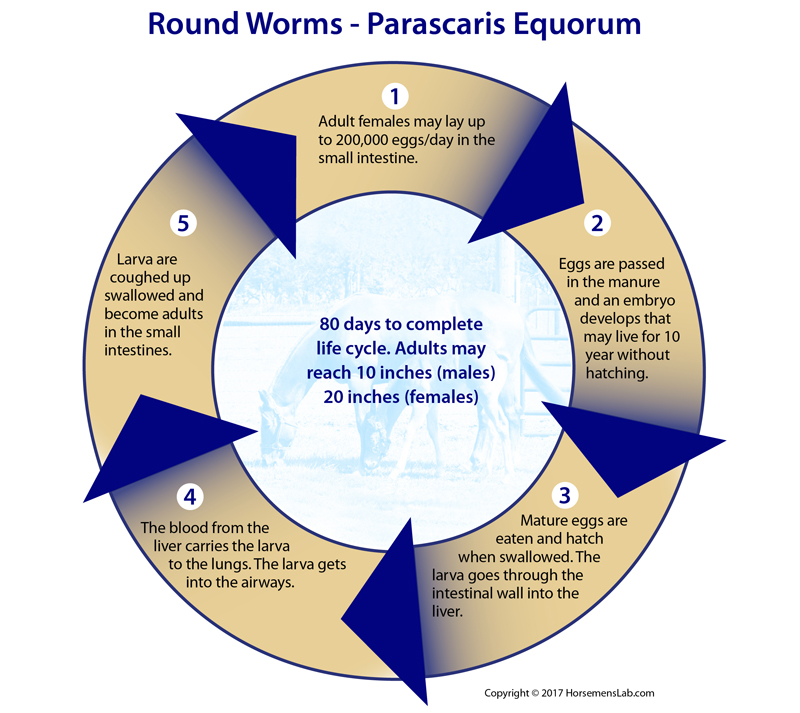
Specimen Photos/Illustrations
Please click on thumbnails to read more about Roundworms:



 Nasal discharge
Nasal discharge
 Colt with 'pot-belly'
Colt with 'pot-belly'
 Lung Inflammation
Lung Inflammation
 Liver Infested
Liver Infested
 Intestinal Rupture
Intestinal Rupture
 Life Cycle.
Life Cycle.
 Round Worm Eggs
Round Worm Eggs



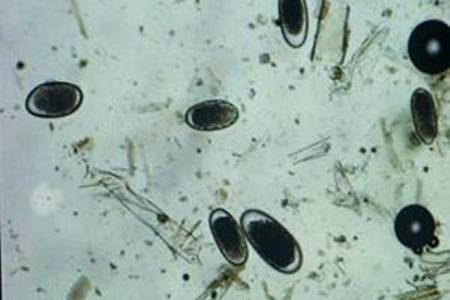 Strongyles
Strongyles
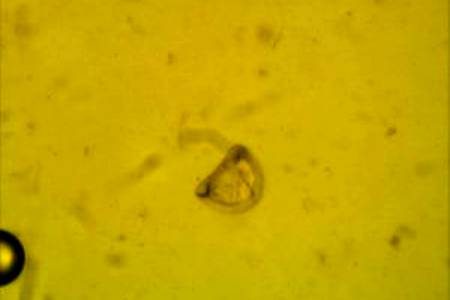 Tapeworms
Tapeworms
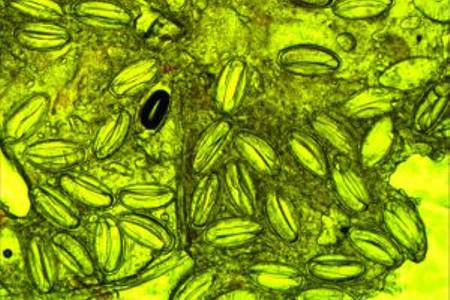 Pinworms
Pinworms
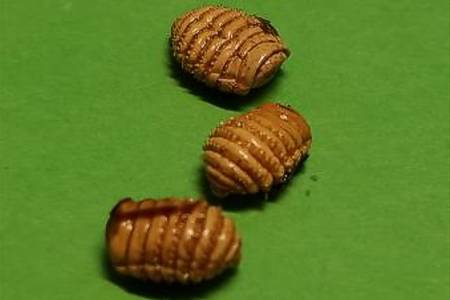 Bots
Bots